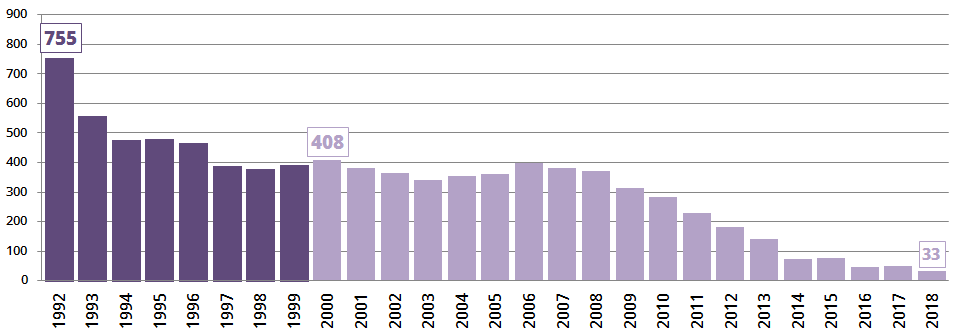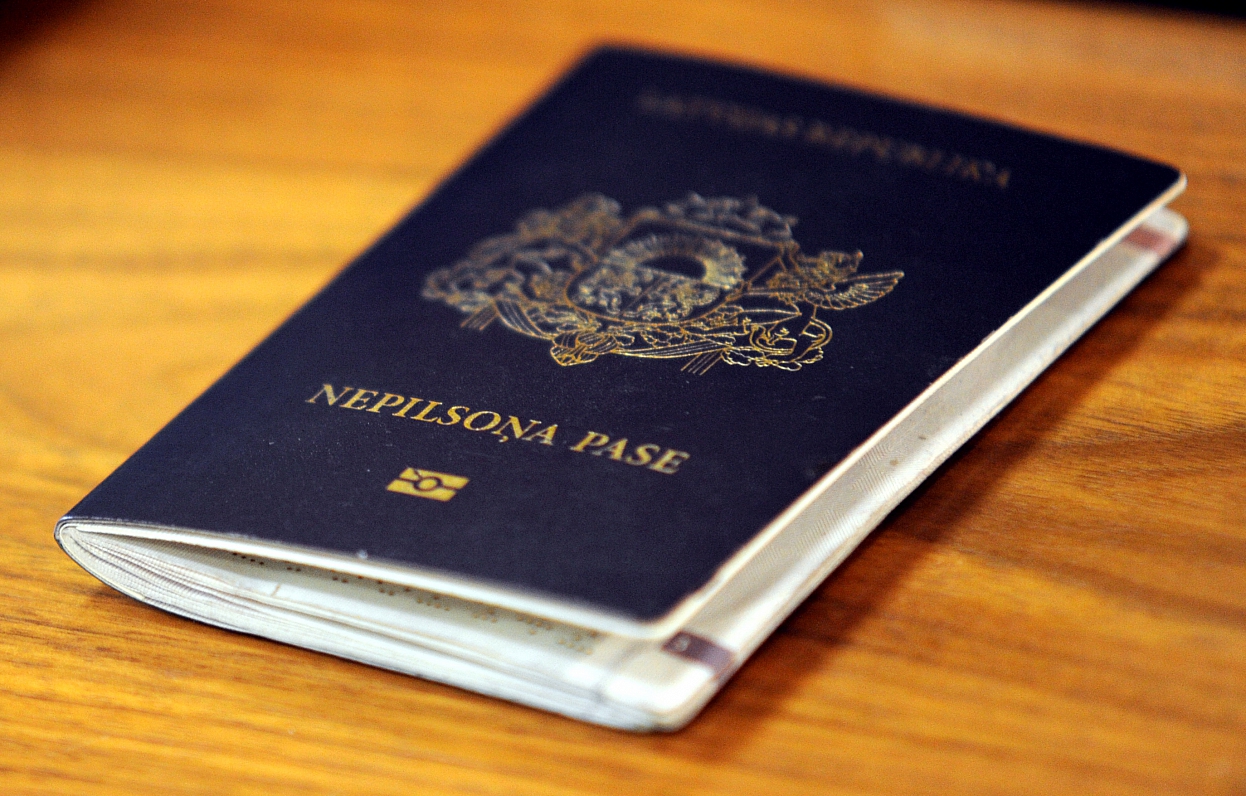This would apply to children born after January 1, 2020.
62 MPs voted 'for', 26 'against' and one 'abstained', which is also an option in the Latvian parliament.
The bill anotation says it would encourage the development of an integrated public sharing joint Latvian values. This would amount to a symbolic step that would cease the division of Latvian people into opposing groups.
But the proposal is facing opposition from the conservative parties in parliament, the National Alliance and the New Conservative Party.
Who are the 'non-citizens' mean and how did they come to be?
On October 15, 1991 the Supreme Council (the interim parliament) granted citizenship to people who were citizens during the inter-war period, as well as their offspring. As a result, a third of Latvian residents who were largely Soviet-era immigrants became non-citizens with an ambiguous legal status. During the last 25 years, 150,000 non-citizens have been granted citizenship under the naturalization program. About 250,000 are still non-citizens and don't enjoy certain rights, like the right to vote or hold certain public offices.
MP Aldis Gobzems (independent) called the presidential initiative 'insufficient' and said he would ask granting citizenship to all the people born in Latvia after 1990 who have graduated from a Latvian school. He said he thinks the non-citizen status divides the Latvian public and discourages loyalty to the state.
Evija Papule (Harmony) said that the way Latvia approaches the matter of non-citizens shows its inability to make substantial decisions.
Meanwhile National Alliance MP Edvīns Šnore noted that non-citizens' children can obtain citizenship should they wish to do so, and that the current bill applies only to people who don't want Latvian citizenship for themselves and their children.
Marija Golubeva (Development/For!) said that the transition period of 29 years after renewal of independence has been way too long. In this case, what the parents want is an "interesting matter", seeing as parents don't always make decisions in the best interests of the state. She compared this to the way some parents choose not to vaccinate their children.
Didzis Šmits (KPV LV) said that adopting the bill would correct and error and make good for "a treason of sorts". It's likely Šmits referred to those who voted for Latvian independence in the hopes that they would be recognized as citizens later on.
Dagmāra Beitnere-Le Galla (New Conservative Party) said that the presidential initiative will clash into the Citizenship Law. She said that people who don't want citizenship for their children are afraid of making important decisions.
Beitnere-Le Galla also, for the first time, floated the idea that a referendum should be held over the matter.
Almost 300 children have been born in Latvia with the status of non-citizens within the past five years. These are mostly descendants of Soviet-era immigrants. Parents have to specify that they want their children to become non-citizens, otherwise they are given Latvian citizenship at birth.

(Number of children assigned 'non-citizen' status by year.)
This is the most contested proposal of president Vējonis' term in office. The Saeima last September rejected an identical proposal, but signs are that now, most MPs are in favor of the initiative.
Read more about Latvia's "non-citizens" and how their special legal status – they can't vote – came to be HERE.





























